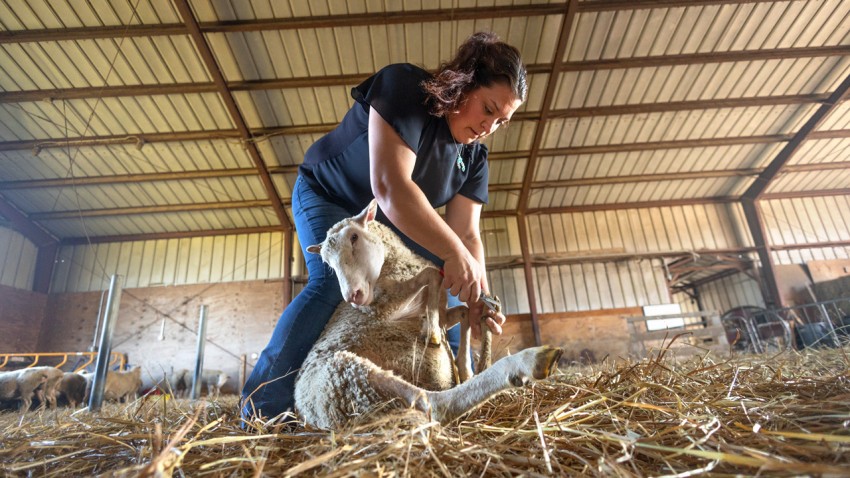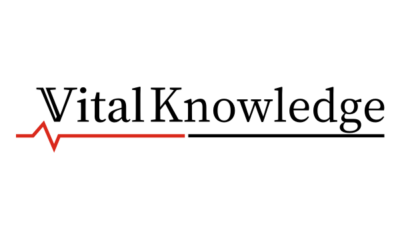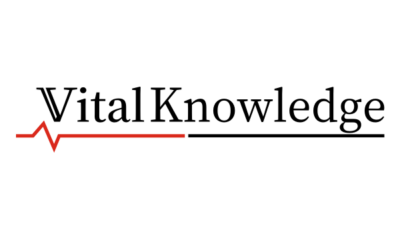Education
Cornell Launches PRO-LIVESTOCK Program to Boost New York Farmers

A new initiative by Cornell University is set to support New York’s livestock farmers amidst rising demand for local meat and dairy products. The PRO-LIVESTOCK program, launched by the Department of Animal Science at Cornell’s College of Agriculture and Life Sciences, aims to enhance resources for cattle, goat, and sheep farmers throughout the state. This program, which received funding from the New York State Department of Agriculture and Markets, builds on Cornell’s successful PRO-DAIRY model, which has aided dairy farmers for over 35 years.
In a demonstration at Hidden Canyon Farms in Lyons, New York, Adam Murray, Cornell’s new beef cattle extension specialist, showcased techniques for assessing livestock. During the event in late July, he evaluated eight heifers in front of 35 local beef producers, emphasizing the importance of integrating various tools like DNA testing to enhance animal quality. Sue Olson, co-owner of the farm, noted that such hands-on learning experiences are essential for beef producers: “You could actually see things instead of looking at a PowerPoint,” she said, stressing the vital role universities play in knowledge transfer.
The demand for livestock products in New York is significant. In 2022, beef cattle production alone generated nearly $500 million in revenue, with figures more than doubling since 2017. There is also a growing interest in local goat and sheep products, which aligns with consumer trends favoring state-grown food. This demand was highlighted in a 2018 survey of 450 New York livestock farmers conducted by the Cornell Small Farms Program, which revealed that 85% of respondents sought more science-based guidance for production and market development.
Nancy Glazier, a small farms and livestock specialist with Cornell Cooperative Extension, noted the pressing need for resources: “We need people who producers can go to if they have a specific question about beef cattle,” she said, advocating for enhanced support systems through PRO-LIVESTOCK. The program plans to expand its offerings, with the goal of adding specialists in poultry, swine, and livestock processing in the future.
The funding for PRO-LIVESTOCK was championed by New York State Senator Michelle Hinchey and Assemblywoman Donna Lupardo. Hinchey expressed pride in securing budget support for the initiative, highlighting its potential to foster economic sustainability among farmers and improve food security in New York.
The program has already garnered strong interest from local farmers and industry associations. Jessica Waltemyer, the small ruminant extension specialist at Cornell, emphasized the importance of collaboration: “With PRO-LIVESTOCK, the opportunities for livestock farmers to collaborate with Cornell are endless,” she said. Farmers are eager to leverage the expertise of Cornell’s specialists to enhance their operations and profitability.
New York’s unique agricultural landscape, particularly its favorable grazing conditions, positions it well for livestock production. Murray pointed out that the state has abundant cool-season forages, such as orchard grass and clover, making it an ideal environment for raising cattle. He aims to help farmers maximize these strengths, noting the potential for direct-to-consumer marketing in the region.
Murray also expressed a vision for reintegrating beef cattle into Cornell’s campus, which last hosted a herd in 2016. His plan includes a feeder-calf program that would allow small producers to send their weaned calves to Cornell while retaining ownership. This initiative would enhance cattle health and uniformity, ultimately leading to greater market value for participating farmers.
In addition to supporting beef producers, Waltemyer is focused on veterinary care for small ruminants. She has actively addressed challenges like the barber pole worm, a parasite affecting sheep and goats. A recent webinar on the topic attracted over 450 participants nationwide, reflecting the high demand for veterinary education in this field.
Collaborating with the next generation of farmers is a shared priority for both Murray and Waltemyer. With her own experience managing a diverse farm, Waltemyer recognizes the physical and emotional benefits of agricultural life and is dedicated to sharing these advantages with others.
The rise in local demand for sheep and goat products has also positively impacted businesses like Battenkill Fibers, New York’s largest commercial spinning mill. Founder Mary Jeanne Packer has seen her business flourish since its inception in 2009, driven by the increased interest in locally sourced yarn. Packer commended Cornell’s ongoing support, stating, “Universities and especially extensions are still seen as someone you can trust.”
As PRO-LIVESTOCK develops, it promises to strengthen ties between New York’s agricultural community and academic resources. The initiative reflects a broader commitment to supporting local farmers and ensuring the sustainability of the state’s agricultural landscape for future generations. With the support of Cornell University and state funding, New York’s livestock farmers are poised to capitalize on growing consumer trends while enhancing their operational capabilities.
-

 Technology5 months ago
Technology5 months agoDiscover the Top 10 Calorie Counting Apps of 2025
-

 Technology3 weeks ago
Technology3 weeks agoOpenAI to Implement Age Verification for ChatGPT by December 2025
-

 Health3 months ago
Health3 months agoBella Hadid Shares Health Update After Treatment for Lyme Disease
-

 Health4 months ago
Health4 months agoAnalysts Project Stronger Growth for Apple’s iPhone 17 Lineup
-

 Health4 months ago
Health4 months agoErin Bates Shares Recovery Update Following Sepsis Complications
-

 Technology5 months ago
Technology5 months agoDiscover How to Reverse Image Search Using ChatGPT Effortlessly
-

 Technology3 months ago
Technology3 months agoElectric Moto Influencer Surronster Arrested in Tijuana
-

 Technology5 months ago
Technology5 months agoMeta Initiates $60B AI Data Center Expansion, Starting in Ohio
-

 Technology2 months ago
Technology2 months agoDiscover 2025’s Top GPUs for Exceptional 4K Gaming Performance
-

 Technology5 months ago
Technology5 months agoRecovering a Suspended TikTok Account: A Step-by-Step Guide
-

 Health5 months ago
Health5 months agoTested: Rab Firewall Mountain Jacket Survives Harsh Conditions
-

 Lifestyle5 months ago
Lifestyle5 months agoBelton Family Reunites After Daughter Survives Hill Country Floods





















